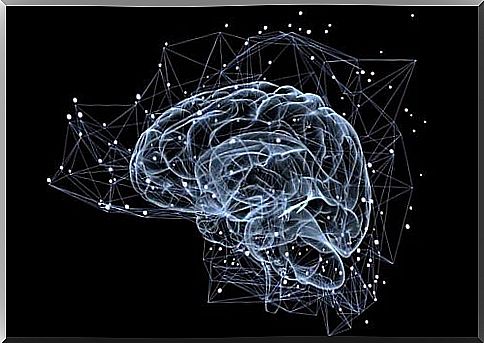Chronic Anxiety And Its Relationship To Noradrenaline

Anyone who suffers from chronic anxiety knows this feeling of omnipresent danger. It cannot be seen, but it can be clearly felt and always there. At any time she can plunge you into this deep abyss from which there is no more escape. This takes the air you breathe, makes you shiver, shudder in a cold sweat and grasp thoughts that are shaped by catastrophe and doom. All of these sensations have a common molecular basis: norepinephrine.
Patients with chronic anxiety tend to have elevated levels of norepinephrine, a neurotransmitter and hormone that affects numerous organ systems and can affect heart health, among other things.
For all those readers who have not heard of this neurotransmitter, which also functions as a hormone, let us first give a brief example. Let’s imagine we want to cross a street, but when we put our first foot on the road, a loud car horn sounds just a few meters away from us. We were so lost in thought that we forgot to look at the traffic light, which is now red. But before we even come to that conclusion, we jumped back on the sidewalk. Here, in safety, we can now feel how our heart beats, how fast we breathe and maybe also that our hands are shaking. That was close. Fortunately, we can rely on our sympathetic nervous system.
Norepinephrine is one of the most important neurotransmitters in the sympathetic nervous system. Its job is to evoke a response when our brain detects danger before we can make a detailed assessment of the situation. It is this substance that triggers the fight-or-flight editorial team and thus contributes significantly to our survival. If we have to face any danger or want to get to safety, we have to react immediately and we have to rely on our heart, lungs and muscles to do this. Activation of the sympathetic nervous system therefore provokes an increase in the heart rate, an increase in blood pressure, an acceleration of breathing and an improved supply of the muscles that are supposed to be ready for contraction. Although we no longer have to flee from saber-toothed tigers, this neurochemical magic just described allows us to act more effectively when we are faced with everyday risks.

However, there is a clear discrepancy between real dangers that actually threaten our physical integrity and those stressors that activate our sympathetic system in the modern world. But our reaction remains the same: all of our – often unfounded – fears and phobias lead to the release of this catecholamine in exactly the same way as the sight of the saber-toothed tiger did thousands of years ago. Just as primitive man would not have been able to flee from predators again and again, we too exhaust ourselves when we permanently activate the sympathetic nervous system and shower our norepinephrine receptors with ligands.
I suffer from chronic anxiety – what can happen to me?
Chronic anxiety is said to be the disease of the 100 symptoms and, in fact, it manifests itself in a myriad of physical, emotional, and cognitive symptoms. It is all the more surprising that most patients find a way to shape their everyday life with their fear. This is not a healthy way of life, because what once began as a punctual fear that can be overcome has long since become chronic for them and puts a strain on their organism, even if they are only rarely aware of it.
One of the worst things about fear is that she’s a terrible liar. She makes us believe that we are about to lose control and plunge into said abyss and the only chance we can avoid is to listen to her. To this fear that is always right. It makes us pool our energies and focus on the worst possible scenario that could become a reality at any moment.
It is quite understandable that those affected find it difficult to get out of this process – they would then have to fear that this scenario could occur without being prepared for it. What she holds on to in her conviction is norepinephrine, which sticks to its receptor like a key in a lock and nourishes fear.
Chronic anxiety and its impact on the cardiovascular system
According to a study carried out at the University of Iowa (USA), there is a direct connection between the increased release of norepinephrine and the risk of cardiovascular diseases. Anyone who is constantly energized, permanently suffering from stress, experiences extensive physiological changes. These include high blood pressure, tachycardia and arrhythmia – conditions that can be life-threatening under certain circumstances.

Beyond the cardiovascular system: norepinephrine from the adrenal glands
The hormone norepinephrine is not only produced in the nervous system, but also in the adrenal glands. From these glands it enters the circulation and with the blood it reaches practically all other organ systems. This can have devastating consequences for patients with chronic anxiety, because the increased norepinephrine level disrupts the function of numerous organs and causes the following symptoms :
- General malaise
- sleep disorders
- fatigue
- headache
- Sweats
- Loss of appetite
- Indigestion

Norepinephrine and its effects on cognitive processes
There are interesting studies that show that increased levels of norepinephrine lead to an increased risk of attention deficit / hyperactivity disorder. As already mentioned, norepinephrine is more than a hormone – it also acts as a neurotransmitter and is indispensable in this function in order to focus our attention, to call up information stored in memory and to add new ones as well as to integrate incoming stimuli. For all of this to work as it should, the norepinephrine level has to be within a certain range.
Outside of this reference range, there is inevitably a reduction in our cognitive effectiveness: Both a lack of norepinephrine and an excess are associated with memory disorders, learning difficulties and problems concentrating our attention on a certain topic. It is obvious that this condition brings numerous problems for everyday life and is exhausting.
Norepinephrine, chronic anxiety, and depression
We now already know that people with chronic anxiety suffer from the effects of excess norepinephrine. In relation to this, let us add another fact that may invite us to reflect: It is known that catecholamines such as norepinephrine and dopamine play key roles in the pathophysiology of depressive disorders. Any deviation from the norm, be it up or down, causes significant changes in the patient’s mood.
It is therefore not uncommon for patients who live today in this storm of fear, with catastrophic thoughts about the worst possible outcome of any situation, to slip into a severe depressive episode tomorrow. A corresponding hypothesis was put forward as early as the 1960s when Joseph J. Schildkraut of Harvard University (Massachusetts, USA) speculated that norepinephrine and not serotonin are responsible for such depression.

In conclusion, we want to state that we can find a way of healing, regardless of the causes of our anxiety and depression. Even if we suffer from a large number of the above symptoms today, which limit our everyday life, we must not forget that we can be helped. When we stand by this deep abyss again, we can fly over it instead of falling again.
Let us imagine that we had wings and that we could glide over this abyss without feeling fear. From above we could better understand what is going on down there and then move away from that darkness. That is exactly what we are taught in cognitive behavioral therapy. It’s about understanding our fear. It is sometimes necessary to pharmacologically support this psychotherapeutic approach in order to keep the production of norepinephrine at normal levels. We can also help the therapy to be successful if we make sure that our diet is rich in omega-3 fatty acids, vitamin C and copper. These nutrients help our body regulate norepinephrine levels.









